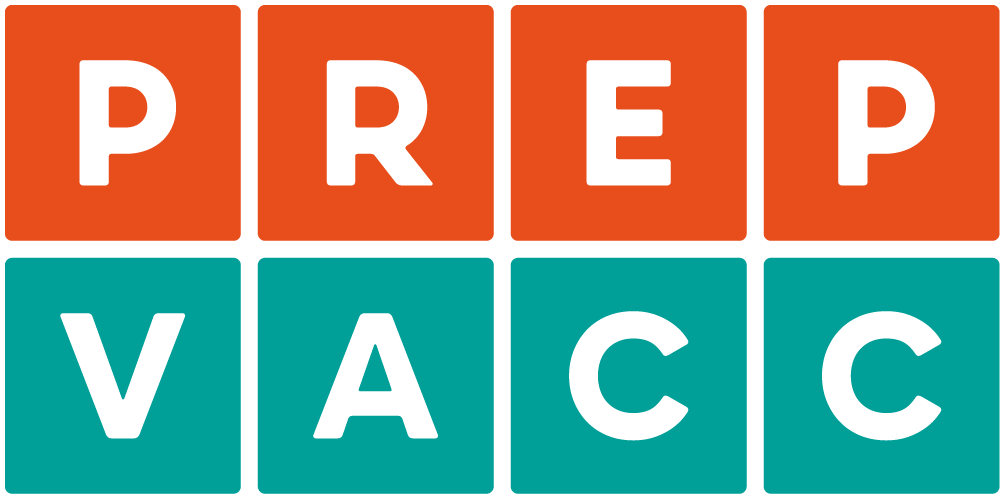MUHAS Newsletter: HIV vaccines in PrEPVacc trial fail to reduce infections: Results announced at AIDS 2024 conference
This article first appeared in the MUHAS Newsletter, July-September 2024, Issue No. 69 and is reproduced here with permission. Download the newsletter here.
CAB and PrEPVacc Researchers discussing the consequences of news release to the participants
PrEPVacc is a multicenter study conducted across Eastern and Southern Africa in three countries (South Africa, Tanzania and Uganda) from 2020 to 2024. It was a phase IIb (Proof of concept) HIV vaccine efficacy trial involving populations at the high risk of acquiring new HIV infection. The Muhimbili University of Health and Allied Sciences (MUHAS) in Dar es Salaam, Tanzania was among the sites that targeted and enrolled female sex workers (FSWs) aged between 18 and 39 years old.
The findings of the PrEPVacc trial have revealed that neither of the two experimental vaccine regimens tested were effective in reducing new HIV infections. The trial which included participants from South Africa, Tanzania and Uganda, was halted in November 2023 when independent experts determined that the vaccines had little chance of demonstrating efficacy. The findings were officially announced at the AIDS 2024 conference in Munich, Germany on 23rd July, 2024.
Researchers reported a higher number of new HIV infections in the vaccine arms compared to the placebo groups, though they noted that the statistical confidence intervals were too wide to draw definitive conclusions. Additionally, the infection rate in the placebo group was unexpectedly low, a phenomenon that could not be fully explained by neither difference in condom use nor the use of pre-exposure prophylaxis (PrEP).
Despite the disappointing results, the PrEPVacc team is collaborating with global researchers to conduct further immunological analyses, hoping to better understand the differences in infection rates between the vaccine and placebo groups.
In the three countries where the trial was conducted, HIV remains a significant public health challenge. According to UNAIDS, 10.7 million people were living with HIV in South Africa, Tanzania, and Uganda in 2022, with 244,000 new infections reported in that year.
PrEPVacc was the only ongoing HIV vaccine efficacy trial at the time it was concluded. The study, led by African researchers and supported by European collaborators, tested two different vaccine regimens to assess their ability to prevent new HIV infection in vulnerable populations. Additionally, it evaluated a new form of oral PrEP against the current standard of care. The results of the oral PrEP study are expected to be announced later in 2024.
Reactions from MUHAS Trial Leaders and Participants
MUHAS PrEPVacc study team
Prof. Said Aboud, Principal Investigator of the Dar es Salaam site at Muhimbili University of Health and Allied Sciences (MUHAS), emphasized the importance of the trial despite its outcome. “The experience gained, capacity built, data generated, and lessons learned from PrEPVacc trial will pave the way for more research to find affordable and effective HIV vaccine. Meanwhile, I urge everyone to remain vigilant in using the available existing interventions to prevent new HIV infection” he said.
Mr. Joel Ndayongeje, a member of the Community Advisory Board at the Dar es Salaam site, praised the commitment of the study’s participants. “Their study participants] perseverance, despite community pressure and stigma, was crucial for the integrity of this trial,” he said.
Ms. Asha Ally, a participant in the PrEPVacc study, expressed mixed emotions. “I am happy we completed the study, but the findings were disappointing. We were hopeful the vaccine would work, but now we must look ahead. One step is a good start for the next,” she said, remaining optimistic about future research.
The PrEPVacc trial marks a significant effort in HIV vaccine research, particularly in Eastern and Southern Africa, and although the findings did not meet expectations, the data and insights gained will inform the next steps in the ongoing fight against HIV and AIDS.
Download the MUHAS Newsletter issue 69 (July-September 2024) here
Quotes from PrEPVacc participants at the MUHAS site
Experienced Benefits of PrEPVAcc trial
“We were offered health checkups, and we were given the results; if we happened to have health concerns, they cared for us. I mean, that is what increased my interest and to remain close to this study.” (Participant XX 01)
Another participant said:
“I gained experience of participating in this research …now I am confident… I feel free. I am not afraid of medical checkups, even receiving the results... I get correct results because of using preventive medicine [PrEP], which I use according to the advice….” (Participant XX 02)
After knowing the PrEPVacc trial results (same participants):
“We are thankful that we started, and now we have arrived at the end. … fine, the results are not that friendly because it is something we did not expect. We had already started celebrating the vaccine had been found… the results were not very impressive to me. The results have shed light on the upcoming studies, which I expect will bring better results...” (XX 01)
Another participant said:
“My opinion after knowing the results [PrEPVacc results] is that, although the results are not impressive, this study was good from the beginning… I believe that is what happened, but in the future or any other studies, I am eager to see the researchers conducting studies that can provide good results.” (XX 02)
Quotes from a CAB member at the MUHAS site
“I appreciate the commitment of research participants, who remain dedicated to the study despite community pressure and stigma they might face.”
“I very much appreciate the transparency and commitment of study staff in engaging the CAB as a critical link between the Scientists and the Community.”


